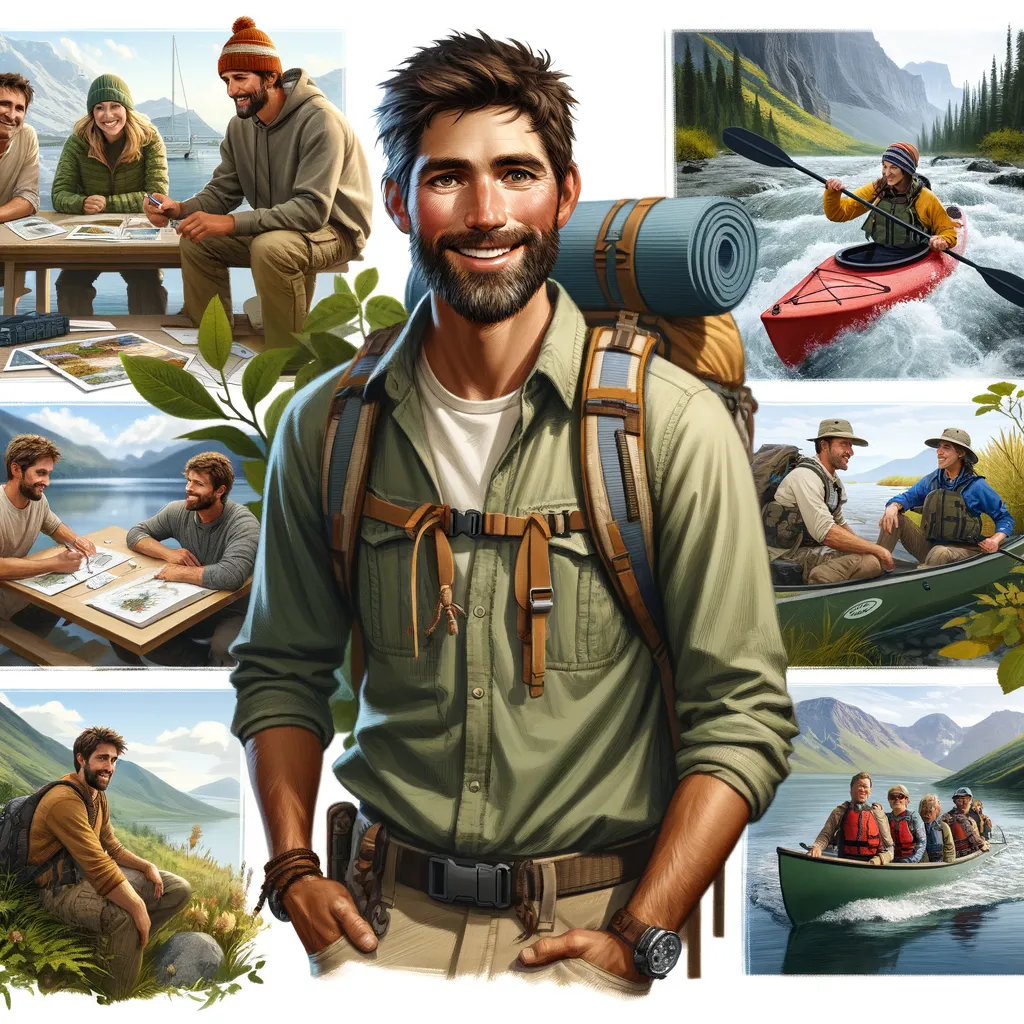Embarking on a Journey: How to Become a Citizen Scientist in Conservation
Welcome, eco-conscious parents! Are you looking to make a significant impact on our planet while fostering a love for science and nature in your children? Then, stepping into the world of citizen science in conservation is a fantastic journey for your family. This guide is designed to help you and your little environmentalists embark on an adventure that’s not only rewarding but incredibly impactful. Let’s dive into the exciting realm of citizen science and discover how you can contribute to global conservation efforts, right from your backyard!
Understanding Citizen Science
What is Citizen Science? At its core, citizen science involves public participation and collaboration in scientific research with the aim of increasing scientific knowledge. As a citizen scientist, you’re not just an observer of the wonders of nature; you’re an active participant in its protection and study. This collaborative approach to research allows scientists to undertake large-scale projects, collecting data from various locations at a fraction of the cost and time.
Why Conservation? Conservation efforts are crucial in protecting our planet’s biodiversity, ecosystems, and natural resources. By contributing to conservation projects, you help safeguard the environment for future generations, ensuring your children inherit a world brimming with the wonders of nature.
Getting Started as a Citizen Scientist
The beauty of citizen science is its accessibility. Regardless of age, educational background, or expertise, there’s a conservation project that can benefit from your contribution. Here’s how you and your family can start:
- Choose a Project That Excites You: With countless conservation projects searching for volunteers, find one that sparks your family’s curiosity and passion. Whether it’s monitoring local wildlife, tracking climate change impacts, or surveying plant species, select a project that aligns with your interests.
- Equip Yourself with Knowledge and Tools: Many projects require minimal equipment, such as a smartphone, camera, or binoculars. Familiarize yourself with the project’s protocols and data collection methods by participating in training sessions or using educational resources provided by the project leads.
- Engage and Participate: Once you’ve selected a project and understood the requirements, it’s time to dive in. Spend time outdoors with your family, observing, recording, and submitting data. Remember, consistency is key in contributing valuable data to conservation efforts.
- Connect with a Community: Citizen science is a collective endeavor. Join forums, attend meetups, and connect with fellow citizen scientists to share experiences, tips, and insights. Engaging with a community enhances your journey and amplifies the impact of your contributions.
Benefits of Becoming a Citizen Scientist
Embarking on this journey as a citizen scientist with your family is not just about contributing to conservation—it’s a deeply enriching experience that fosters curiosity, responsibility, and a love for our planet. Here are some benefits you’ll enjoy:
- Educational Enrichment: Citizen science offers hands-on learning experiences that are far more engaging than textbook knowledge. Children learn about biodiversity, ecosystems, and the scientific method in real-world settings.
- Enhancing Environmental Stewardship: Participating in conservation projects cultivates a sense of responsibility and stewardship for the environment. It’s a powerful way to instill in your children the importance of protecting our planet.
- Improving Health and Wellbeing: Spending time outdoors, connecting with nature, and engaging in physical activity benefits both mental and physical health. Citizen science encourages families to explore the great outdoors and enjoy the myriad health benefits it offers.
- Connecting with Like-Minded Individuals: The citizen science community is a welcoming space for individuals sharing a common goal. It’s an opportunity to meet new people, forge friendships, and collaborate on meaningful projects.
As we embark on this journey together, remember that each contribution, no matter how small, plays a pivotal role in conservation efforts. Embrace the adventure, the learning, and the joy that comes from being a citizen scientist. Your actions today are crafting a legacy of environmental stewardship for generations to come.
Ready to dive deeper into the world of citizen science in conservation? In the next section, we’ll explore some of the most captivating projects you and your family can join, along with tips for maximizing your impact and enjoyment. Stay tuned, as your adventure into citizen science is just beginning.
“
Embarking on a Journey: How to Become a Citizen Scientist in Conservation
Welcome, eco-conscious parents! You’re about to embark on a fascinating journey into the world of citizen science, an endeavor that promises not just a wealth of learning and discovery but also a significant contribution to global conservation efforts. This captivating venture isn’t merely about observing nature but actively participating in its preservation alongside your children.
Understanding Citizen Science
What is Citizen Science? In essence, citizen science encompasses public involvement in scientific research with the goal of expanding our knowledge base. It allows you and your family to move beyond mere observers to becoming integral protectors and students of nature. This collaborative research model empowers scientists to conduct expansive projects, gathering data across diverse locales, both quickly and economically.
Why Conservation? The importance of conservation cannot be overstated—it’s about safeguarding our planet’s biodiversity, ecosystems, and natural resources for future generations. By joining conservation projects, you contribute to a grander vision, ensuring the world your children inherit is full of natural wonders.
Getting Started as a Citizen Scientist
The beauty of citizen science lies in its inclusivity. Regardless of your age, educational background, or area of expertise, there’s a conservation project out there that can benefit from your input. Here’s how to begin:
Choose a Project That Excites You: The plethora of available conservation projects means there’s something for every interest. From monitoring local wildlife and assessing the impacts of climate change to cataloging plant species, it’s crucial to select a project that ignites your family’s passion.
Equip Yourself with Knowledge and Tools: Most projects necessitate minimal equipment—think smartphones, cameras, or binoculars. It’s essential to understand the project’s protocols and data collection techniques. Participate in training sessions or utilize educational resources provided by project organizers to prepare adequately.
Engage and Participate: With a project picked and the groundwork laid, it’s time to immerse yourselves. Explore the great outdoors, gathering observations, and submitting data. Consistency is your best ally in delivering valuable insights to conservation efforts.
Connect with a Community: Citizen science is a communal undertaking. By joining forums, attending meetings, and linking up with fellow citizen scientists, you enrich your own experience while amplifying the collective impact of your work.
Benefits of Becoming a Citizen Scientist
Embarking on this path with your family goes beyond mere contribution; it’s an enriching experience that fosters curiosity, responsibility, and planetary love. The benefits are manifold:
Educational Enrichment: Citizen science provides immersive learning experiences, elevating education from the confines of textbooks to the expansiveness of the real world. It’s an effective method for children to learn about biodiversity, ecosystems, and scientific principles.
Enhancing Environmental Stewardship: Active participation in conservation projects instills a strong sense of environmental responsibility. It’s a profound way to imprint the importance of safeguarding our planet onto your children.
Improving Health and Wellbeing: The act of spending time outdoors, connecting with nature, and engaging in physical activity has profound benefits on both mental and physical health. Citizen science offers a great excuse to venture into nature and reap these rewards.
Connecting with Like-Minded Individuals: The citizen science community is a vibrant hub for those united by a common goal. It opens doors to new friendships, collaborations, and meaningful project involvement.
As you and your family step into the realm of citizen science, remember, every small effort contributes significantly to conservation. Embrace this adventure, soak in the learning, and relish the joy of becoming citizen scientists. Your endeavors today are weaving a legacy of environmental stewardship for future generations.
Ready to delve deeper into citizen science and conservation? The next sections will unveil some of the most engaging projects you can join, complete with strategies for maximizing both your impact and enjoyment. Your adventure into citizen science is just beginning, and the possibilities are limitless. Together, you can make a real difference for our planet, transforming curiosity and enthusiasm into actionable conservation efforts. Start your journey today, and discover the untold benefits that await both you and your children in the captivating world of citizen science.
Camping. Great read on camping
Disclaimer
The articles available via our website provide general information only and we strongly urge readers to exercise caution and conduct their own thorough research and fact-checking. The information presented should not be taken as absolute truth, and, to the maximum extent permitted by law, we will not be held liable for any inaccuracies or errors in the content. It is essential for individuals to independently verify and validate the information before making any decisions or taking any actions based on the articles.




